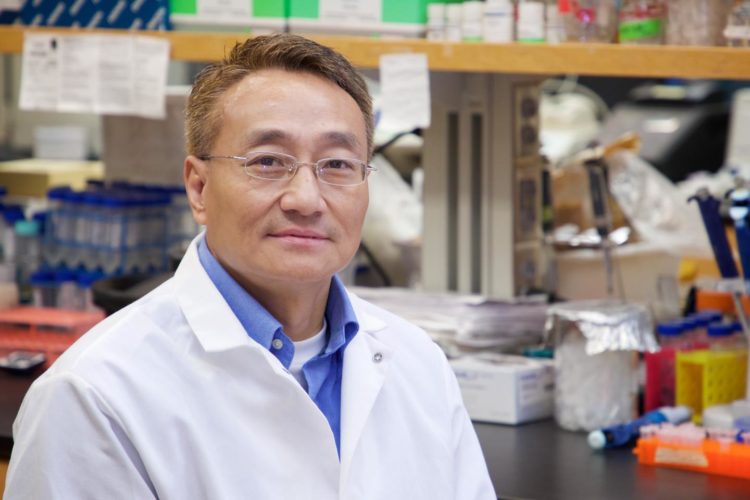
Credit: Clemson College of Science
CLEMSON, South Carolina — Clemson University College of Science Professor Hong Luo has received a $500,000 grant from the U.S. Department of Agriculture National Institute of Food and Agriculture to develop genetically improved and more robust turfgrass and switchgrass. These perennial plants represent a multibillion-dollar segment of the U.S. agricultural economy.
Covering millions of acres on golf courses, athletic fields, cemeteries and parks nationwide, turfgrasses require large amounts of water to remain healthy, which leaves them particularly vulnerable to extreme heat and drought. “We want to develop technologies that improve turfgrass so it becomes more stress-resistant,” said Luo, a professor in the department of genetics and biochemistry. “If we can genetically improve the plants then they will need much less water.”
The tall, hearty switchgrass plant is a promising biofuel crop that could someday produce greater ethanol yields than corn. In addition, switchgrass is considered a weed and can grow in poor soil conditions and requires less water and fertilizer than corn.
A key challenge to engineering better turf and switchgrass is preventing lab-engineered genes from escaping into the non-modified grasses or weeds growing in nearby fields. This type of transfer could have unpredictable environmental consequences. Scientists agree that one of the most effective ways to prevent this spillover is to produce completely sterile grass plants.
“The purpose of this newly funded research is to develop a molecular strategy and achieve trans-gene containment, while producing a clean final product or plant that is environmentally safe,” Luo said.
Luo’s approach to containing the engineered genes is to integrate two site-specific DNA recombination systems with total sterility induction mechanisms in the final transgenic product.
The first line will contain three active genes for Cre recombinase, hygromycin resistance (hyg) and endonuclease Cas9, and an inactive RNAi expression cassette for a flowering control gene, FLO/LFY homolog. The second line will contain an active herbicide resistance gene bar, recombinase gene phiC31 and FLO/LFY homolog gene guide RNA (sgRNA), and an inactive stress-regulating rice SUMO E3 ligase gene, OsSIZ1.
When Luo cross-pollinates the two lines in the lab, certain genes will activate and others will be removed, resulting in a new genetic line that is completely sterile and more stress-resistant. These new plants will not produce pollen or seeds, making it impossible for the modified genes to spread in the wild.
Luo anticipates having a genetically modified new line ready for testing at the end of the four-year research project. If all goes well, the new transgenic line would then be ready for the stringent U.S. Department of Agriculture (USDA) field tests before it could potentially be commercialized.
Luo is familiar with the development and testing process. Before joining the Clemson faculty, he was the director of research at HybriGene Inc., where he led the development of the first genetically engineered, environmentally safe, male-sterile and herbicide-resistant turfgrass. He also helped create a new method for hybrid crop production using site-specific DNA recombination systems.
###
This material is based upon work supported by the U.S. Department of Agriculture (USDA) National Institute of Food and Agriculture (NIFA) under Grant No. 2019-33522-30102. Any opinions, findings and conclusions or recommendations expressed in this material are those of the authors and do not necessarily reflect the views of NIFA.
Media Contact
Laura Schmitt
[email protected]
864-656-9348
Original Source
https:/





